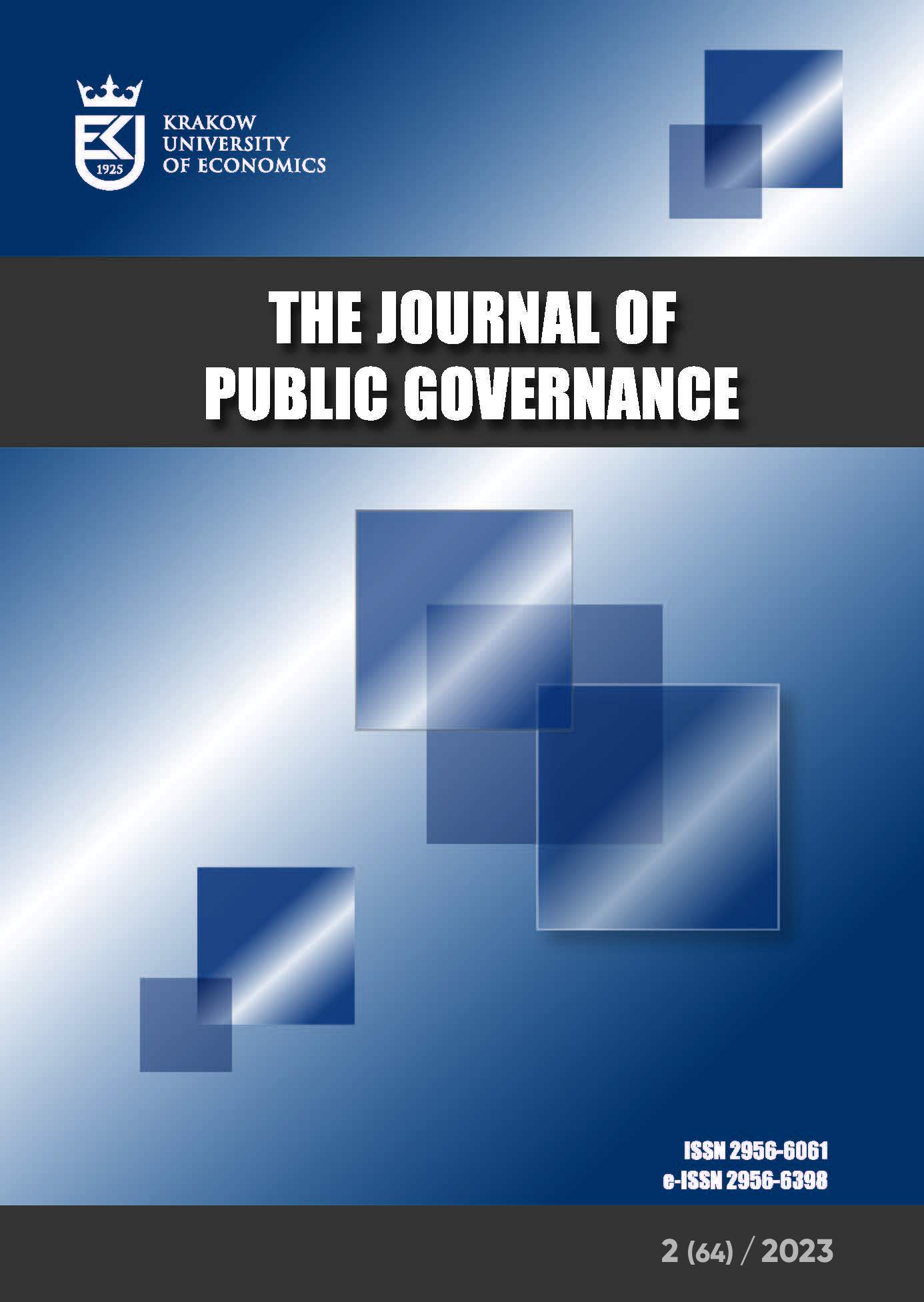The Effectiveness of Municipal Waste Management in Polish Cities
DOI:
https://doi.org/10.15678/ZP.2019.50.4.03Keywords:
public utility services, municipal waste companies, economic effectiveness, taxonomic methodologyAbstract
Objectives: To seek for the optimum economic model for public utility services in the sector of municipal waste management; to present the results of studies regarding the efficiency of companies in the sector of management of municipal waste and the systems that such companies function within.
Research Design & Methods: Multi-criterion rankings with the use of synthetic variable, the structure of which has been based on zeroed unitarisation (method of zeroed unitarisation – MZU). Owing to general financial data, technical and operational data, as well as output data, it was possible to determine rankings of effectiveness for companies in the system of municipal waste management and communes. What is more, a correlation diagram was created – the dependency between the aggregated effectiveness of companies and the aggregated effectiveness of waste management in communes.
Findings: Communes which entrust municipal companies with management of an integrated system for municipal waste management or/and its individual chains feature more properties of operating, economic, and financial effectiveness within the scope of management of municipal waste.
Implications / Recommendations: It is demonstrated that communes which entrust municipal companies with management of an integrated system for municipal waste management – or/and its individual chains – feature more properties of operating, economic, and financial effectiveness within the scope of the management of municipal waste.
Contribution / Value Added: Further extended research into the organisation and management of the municipal waste management system.
Article classification: The article presents an original and innovative analysis of the municipal waste management sector with the use of the developed research method of aggregation and unit efficiency ranking. The purpose is to continue the extended research on the organisation and management of the municipal waste management system.
Downloads
References
Highfill, J., & McAsey, M. (1997). Municipal waste management: Recycling and landfill space constraints. Journal of Urban Economics, 41(1), 118–136.
Famielec, J. (2017a). Gospodarka odpadami komunalnymi jako działalność gospodarcza realizowana w ogólnym interesie. In: M. Kożuch (Ed.), Pomoc publiczna. Doświadczenia wybranych sektorów gospodarki (pp. 117–146). Kraków: Fundacja Uniwersytetu Ekonomicznego w Krakowie.
Famielec, J. (2017b). Restrukturyzacja sektora gospodarki odpadami komunalnymi. In: J. Famielec & M. Kożuch (Eds.), Restrukturyzacja sektorów gospodarki i przedsiębiorstw (pp. 75 –92). Kraków: Fundacja Uniwersytetu Ekonomicznego w Krakowie.
Młodak, A. (2006). Analiza taksonomiczna w statystyce regionalnej. Warszawa: Difin.
Poskrobko, B. (2007). Zarządzanie środowiskiem. Warszawa: PWE.
Stern, N. (2010). Globalny ład. Warszawa: Wydawnictwo Krytyki Politycznej.
Wąsowicz, K., Famielec, S., & Chełkowski, M. (2018). Gospodarka odpadami komunalnymi we współczesnych miastach. Kraków: Fundacja Uniwersytetu Ekonomicznego w Krakowie.
Wąsowicz, K. (2018). Efektywność przedsiębiorstw użyteczności publicznej lokalnego transportu zbiorowego. Kraków: Fundacja Uniwersytetu Ekonomicznego w Krakowie.
Downloads
Published
How to Cite
Issue
Section
License
Open Access, licence: CC-BY 4.0




